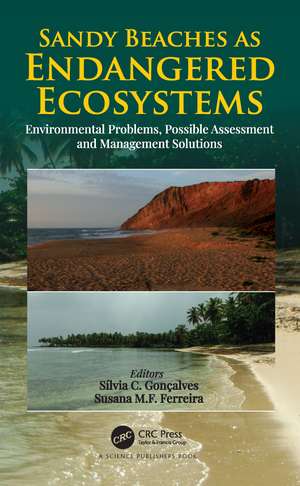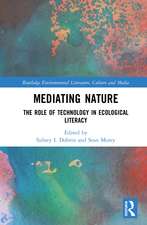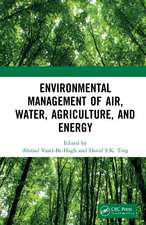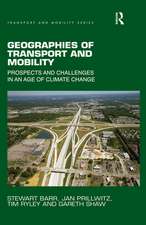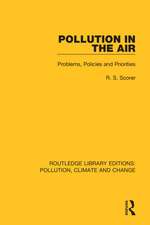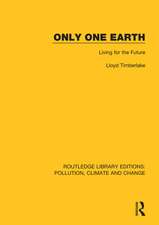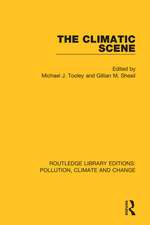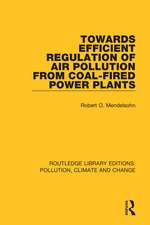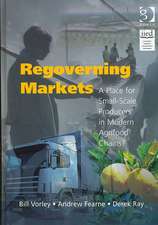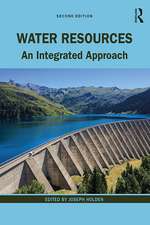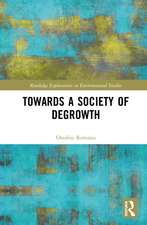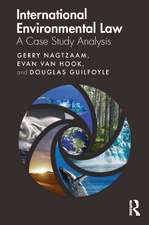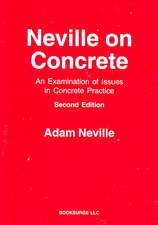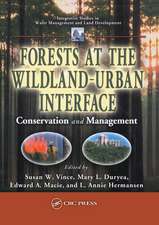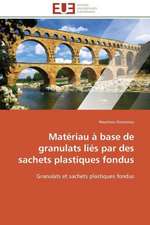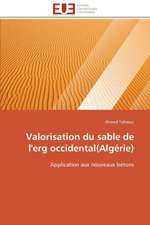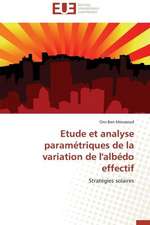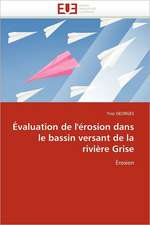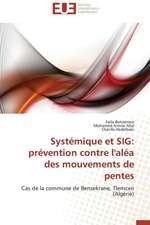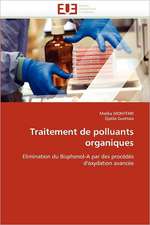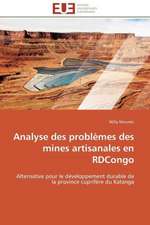Sandy Beaches as Endangered Ecosystems: Environmental Problems, Possible Assessment and Management Solutions
Editat de Sílvia Gonçalves, Susana Ferreiraen Limba Engleză Paperback – 27 mai 2024
| Toate formatele și edițiile | Preț | Express |
|---|---|---|
| Paperback (1) | 390.58 lei 6-8 săpt. | |
| CRC Press – 27 mai 2024 | 390.58 lei 6-8 săpt. | |
| Hardback (1) | 1223.61 lei 6-8 săpt. | |
| CRC Press – 10 feb 2022 | 1223.61 lei 6-8 săpt. |
Preț: 390.58 lei
Preț vechi: 531.68 lei
-27% Nou
Puncte Express: 586
Preț estimativ în valută:
74.75€ • 77.22$ • 62.21£
74.75€ • 77.22$ • 62.21£
Carte tipărită la comandă
Livrare economică 25 martie-08 aprilie
Preluare comenzi: 021 569.72.76
Specificații
ISBN-13: 9781032172583
ISBN-10: 1032172584
Pagini: 310
Ilustrații: 122
Dimensiuni: 156 x 234 mm
Greutate: 0.62 kg
Ediția:1
Editura: CRC Press
Colecția CRC Press
Locul publicării:Boca Raton, United States
ISBN-10: 1032172584
Pagini: 310
Ilustrații: 122
Dimensiuni: 156 x 234 mm
Greutate: 0.62 kg
Ediția:1
Editura: CRC Press
Colecția CRC Press
Locul publicării:Boca Raton, United States
Notă biografică
Sílvia C. Gonçalves is a Portuguese researcher, with a PhD in Biology (specialty of Ecology) by the University of Coimbra, Portugal. She is presently Coordinating Professor at the School of Tourism and Maritime Technology (ESTM), of the Polytechnic of Leiria (Portugal), lecturing mainly in the scientific areas of ecology, biological diversity and marine environment. She is also a Senior Researcher at MARE - Marine and Environmental Sciences Centre and focusses her research on marine ecology, in the following domains: (1) bio-ecology of crustacean populations on sandy beaches and their potential as ecological indicators of human impacts; (2) structure and function of macrobenthic communities; (3) monitoring and evaluation of environmental quality in coastal ecosystems, especially on sandy beaches and coastal lagoons. Her scientific research activities also include environmental biotechnology (e.g., bioremediation of trace metals by halophyte plants) and aquaculture (e.g., maintenance and reproduction of sea urchins and fish). Her scientific production includes book chapters in international books, research papers in international scientific periodicals with referee, publications in international congresses with referee, oral and poster presentations on international scientific meetings and the authorship of one documentary of scientific outreach about marine life in coastal areas. She is also referee of several international scientific periodicals from leading publishers (e.g., Elsevier, Springer Verlag, Taylor & Francis) and Associate Editor of the journal Frontiers in Marine Science.
Susana M.F. Ferreira is a Portuguese researcher, with a PhD in Biology (specialization in Ecology) from the University of Coimbra (Portugal), since 2005. She is currently an Adjunct Professor at the Polytechnic of Leiria Portugal), where she lectures biology, zoology, histology, embryology, population dynamics, and is a Coordination Commission member of the Higher Professional Technical Course in Laboratory Analysis. She is also Senior Researcher at MARE - Marine and Environmental Sciences Centre (PLeiria), Collaborator at CFE - Centre for Functional Ecology (University of Coimbra), and member of the ORBEA - Body Responsible for the Animal Welfare of MARE-PLeiria. Her scientific activity includes areas of ecology, biotechnology and aquaculture. The domain of her specialization relates with research on biological and ecological processes in aquatic ecosystems: environmental impact studies, with emphasis on eutrophication processes; population dynamics, biology and secondary production of benthic organisms; community structure and functioning of coastal systems; influence of trematode parasites on estuarine crustaceans and molluscs. Her fascination for the sea and marine life encouraged her to pursue several nautical and underwater activities (local skipper, VHF-A operator, PADI advanced open water and enriched air diver, plus digital underwater photographer). She is currently developing research on trace metals and phytoremediation in coastal habitats; stock assessment of aquatic organisms and their use in aquaculture and biotechnology (namely, sea anemones, polychaetes, sea urchins and fish); animal welfare; and ocean literacy. Her scientific production counts on an international book, chapters in international books, articles in international journals with scientific referee, abstracts in international congress proceedings with scientific referee, oral and panel communications, an invention of a feed for rearing omnivorous fish patented in Europe, plus the direction and authorship of a documentary on marine life.
Susana M.F. Ferreira is a Portuguese researcher, with a PhD in Biology (specialization in Ecology) from the University of Coimbra (Portugal), since 2005. She is currently an Adjunct Professor at the Polytechnic of Leiria Portugal), where she lectures biology, zoology, histology, embryology, population dynamics, and is a Coordination Commission member of the Higher Professional Technical Course in Laboratory Analysis. She is also Senior Researcher at MARE - Marine and Environmental Sciences Centre (PLeiria), Collaborator at CFE - Centre for Functional Ecology (University of Coimbra), and member of the ORBEA - Body Responsible for the Animal Welfare of MARE-PLeiria. Her scientific activity includes areas of ecology, biotechnology and aquaculture. The domain of her specialization relates with research on biological and ecological processes in aquatic ecosystems: environmental impact studies, with emphasis on eutrophication processes; population dynamics, biology and secondary production of benthic organisms; community structure and functioning of coastal systems; influence of trematode parasites on estuarine crustaceans and molluscs. Her fascination for the sea and marine life encouraged her to pursue several nautical and underwater activities (local skipper, VHF-A operator, PADI advanced open water and enriched air diver, plus digital underwater photographer). She is currently developing research on trace metals and phytoremediation in coastal habitats; stock assessment of aquatic organisms and their use in aquaculture and biotechnology (namely, sea anemones, polychaetes, sea urchins and fish); animal welfare; and ocean literacy. Her scientific production counts on an international book, chapters in international books, articles in international journals with scientific referee, abstracts in international congress proceedings with scientific referee, oral and panel communications, an invention of a feed for rearing omnivorous fish patented in Europe, plus the direction and authorship of a documentary on marine life.
Cuprins
1. Sandy Beach Heterogeneity: Intertidal and Supralittoral Communities 2. The Biology and Ecology of Sandy Beach Surf Zones 3. Human Impacts over Sandy Beaches 4. Urbanization of Coastal Areas: Loss of Coastal Dune Ecosystems in Japan 5. Strategies to Mitigate Coastal Erosion 6. Exploring the Sun and the Sea— Vulnerabilities and Mitigation Tools Regarding Touristic and Recreational Activities on Coastal and Beach Systems 7. Validation and Use of Biological Metrics for the Diagnosis of Sandy Beach Health 8. Conservation Shortcuts: A Promisor Approach for Impact Assessments and Management of Sandy Beaches 9. Towards a New Integrated Ecosystem-Based Model for Beach Management: The Case of S’Abanell Beach (Catalonia-Spain: North-Western Mediterranean) 10. The Beach Ecology Coalition: Enhancing Ecosystem Conservation and Beach Management to Balance Natural Resource Protection and Recreational Use 11. Sandy Beach Management and Conservation: The Integration of Economic, Social and Ecological Values
Recenzii
"Documenting beaches from Japan to South Africa, Brazil to Spain, Finland to Italy, and California, this text comprising 11 in-depth articles presents empirical evidence of the vulnerable and dynamic nature of sandy coastlines. Human activities compounded by climate change threaten the stability and very existence of beaches to the detriment of both terrestrial and marine life. This book represents a call to action for better strategies to manage, conserve, and restore beaches through scientific outreach and collective efforts that integrate economic, social, and ecological dimensions. Photographs, charts, graphs, and other visual material plus more than 900 cited references enhance the text."
— A. S. Ricker, Oberlin College, Choice, Feb 2023 Vol. 60
— A. S. Ricker, Oberlin College, Choice, Feb 2023 Vol. 60
Descriere
Sandy beaches are the most abundant coastal environments worldwide, which have an undeniable and unique ecological value. Presently, they are amongst the most endangered ecosystems in the biosphere, mainly due to the influence of several human activities.
